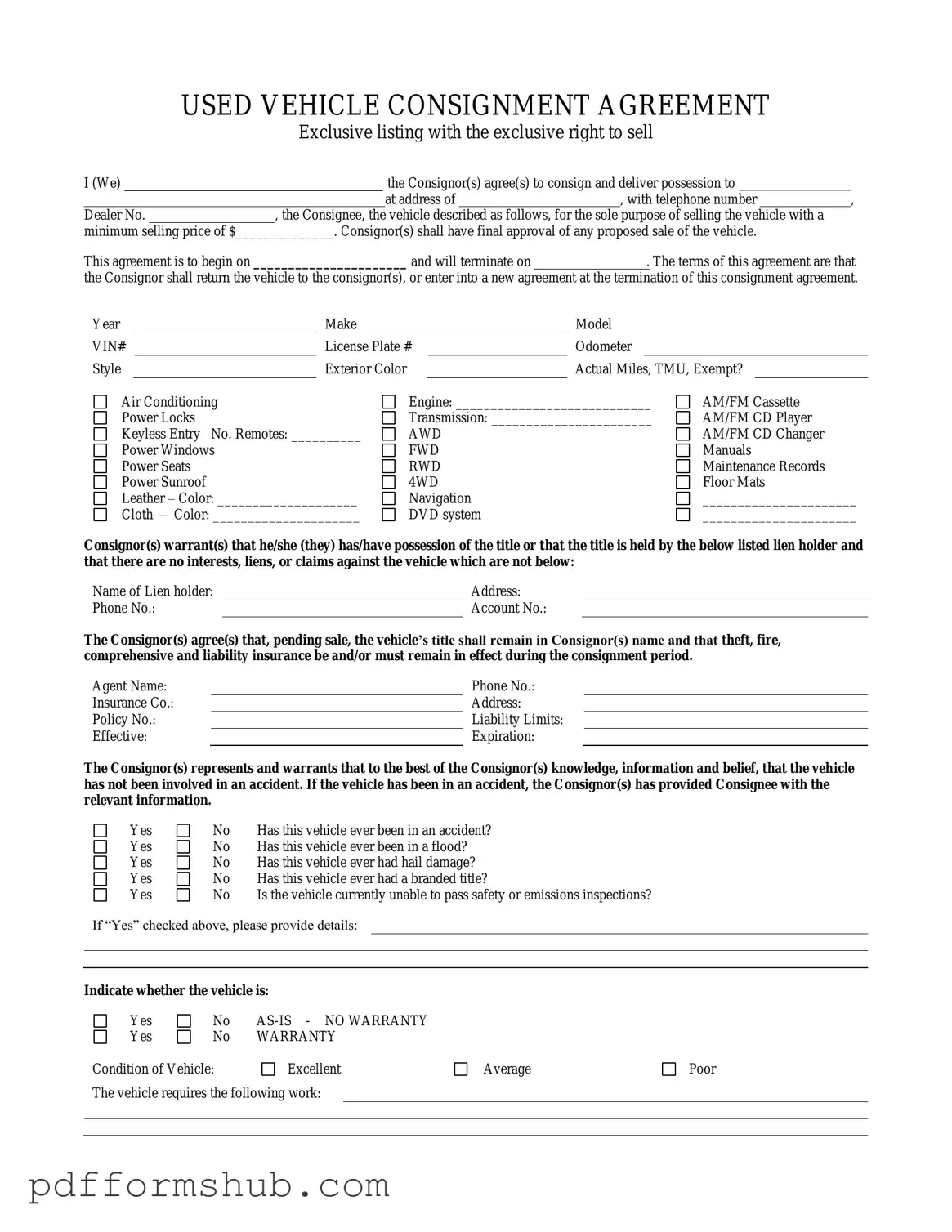Fill in Your Car Consignment Form
The Car Consignment form is a legal document that outlines the agreement between a vehicle owner (the Consignor) and a dealer (the Consignee) for the sale of a vehicle. This form details the terms of the consignment, including the vehicle's specifications, the minimum selling price, and the responsibilities of both parties. To get started with your consignment, fill out the form by clicking the button below.
Customize Form

Fill in Your Car Consignment Form
Customize Form

Customize Form
or
Free PDF Form
Short deadline? Complete this form now
Complete Car Consignment online without printing hassles.